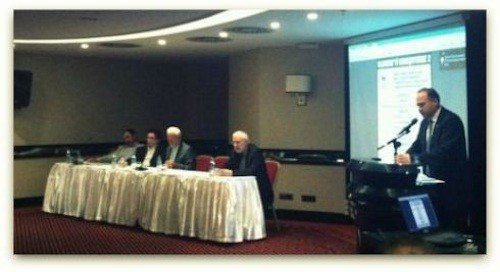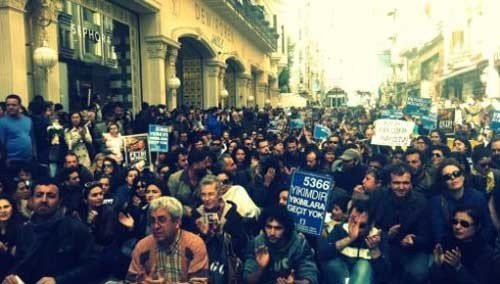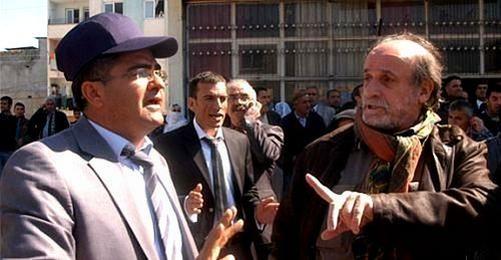The amendment regarding Law No.5683 Related to Residence and Travels of Foreign Subjects will be passed into law in one week's time.
The amendment will affect Armenian citizens - their number estimated by the prime minister at about 100,000 - and citizens of other nationalities who are working in Turkey as well as their employers. Bianet talked to Şefika Gürbüz, President of the Migrants' Association for Social Cooperation and Culture (GÖÇ-DER) about the change.
Gürbüz explained that the ministry worked out these amendments in order to prevent illegal employment, to make it easier for Turkish citizens to find a job and to avoid outflows of foreign exchange.
However, in Gürbüz opinion, this amendment should have been handled in conjunction with the process when the French Parliament accepted the draft bill on punishing the "denial of genocide". She deems the law a "threat to Armenians".
Amendment on its way since 2010
The first sign that the amendment was on its way was given by Prime Minister Recep Tayyip Erdoğan in an interview given to BBC in London in March 2010. The prime minister said that the Armenians were the ones who were going to pay the price for the recognition of the Armenian genocide in national parliaments of other countries.
The prime minister said, "There are 170,000 Armenian people in my country. 70,000 of them are my fellow-citizens. But we are tolerating another 100,000 people in our country. So, what am I going to do - I will tell them to go back to their country tomorrow if necessary".
Who is going to be affected?
However, the amendment that is going to be enacted on 1 February 2012 is of course not going to affect only almost 100,000 Armenians working "without permission" but also people who came to work in Turkey from other countries.
In the current system, people from countries like Turkmenistan, Georgia, Azerbaijan, the Ukraine, Moldova or Indonesia come to Turkey with a tourist visa and work in various business segments without security. They stay for three to six months before they leave and re-enter the country in order to obtain a new tourist visa.
The new regulation increases the time between two entries to 90 days after the exit from Turkey. In general, the absence of 90 days for people who work in child care, patient care or as masseuse/masseur means the loss of job.
Option: Payment of TL 1.330 TL+ insurance premium
An alternative option has been developed for people who do not want to lose their employee:
People who want to stay in the country for work will apply to the Ministry of Labour and Social Security for a work permit. The employer will pay a salary of TL 1,330 (€530) plus insurance premium.
"No sincere approach"
Şefika Gürbüz emphasized that providing social security for employees in the scope of this law instead of in the context of contolling informal economy was a "matter of action and reaction".
* This law will have much more negative effects rather than positive. Furthermore, in political terms this is a threat against Armenians.
* If the approach would have been sincere the duration of 90 days could have been shortened. A person in patient care does not have the option to leave the patient for three months. This person will lose his/her job.
* In a country with a minimum wage of TL 701 (€280), the demanded figure of TL 1,330 is another factor that makes things more difficult.
* The purpose of this law is to create difficulties for the ones who enter the country for work and the ones who want to employ them. The aim is to close the door for their arrival.
* For many years, people from different nationalities came to Turkey for work. Most of them are from Moldova, the Ukraine and Turkmenistan. Until now, there was no reaction voiced against any person with a different nationality apart from Armenian people. The people coming from Turkmenistan in particular were protected. They established their own associations and it was made easier for them to find jobs.
* People coming from Armenia however can only work at workplaces together with their Armenian fellow citizens. This law will narrow that restriction even further.
* There are thousands of people working/being employed off the record. Thousands of people work in the construction or textile sector, as cleaning ladies, in child and patient care without social security and officially not visible. Especially the problems of these people have to be solved. (IC/VK)












